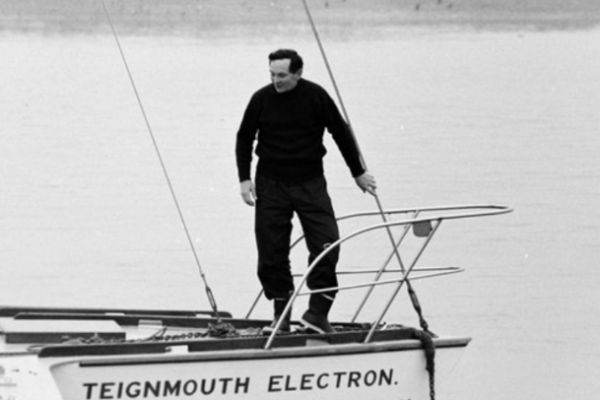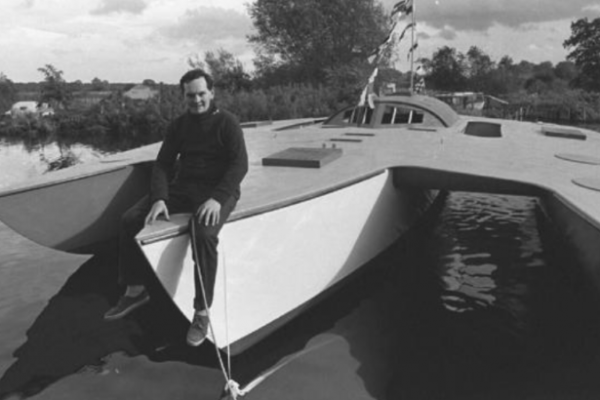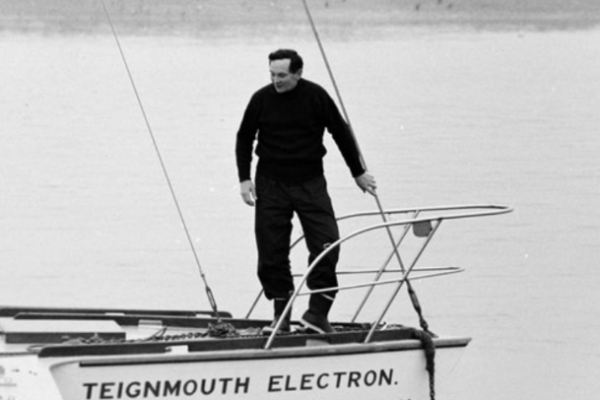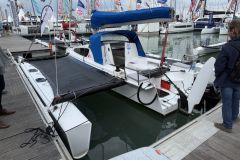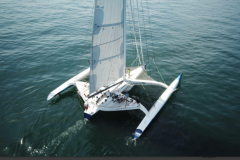While his trimaran, the Teignmouth Electron as his business situation deteriorates and hardships pile up, Donald Crowhurst is forced to falsify his positions to maintain the illusion of success. The result is a race against reality, a downward spiral in which the dream is shattered under the weight of failure. In this final instalment of our report, we explore Crowhurst's mental drift, trapped by his own lies and isolation. As he struggles to maintain the appearance of victory, his story of fraud turns into psychological torment, a dead-end spiral that will lead him to an ultimate decision.
A hellish in camera show
In the vastness of the ocean, Crowhurst is faced with harsh solitude. Far from his fellow competitors, far from any support, he sinks into madness. The isolation of solo sailing becomes mental torture. The long weeks spent without contact with the outside world only aggravate his psychological distress.
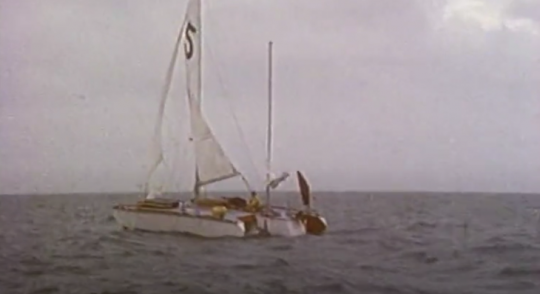
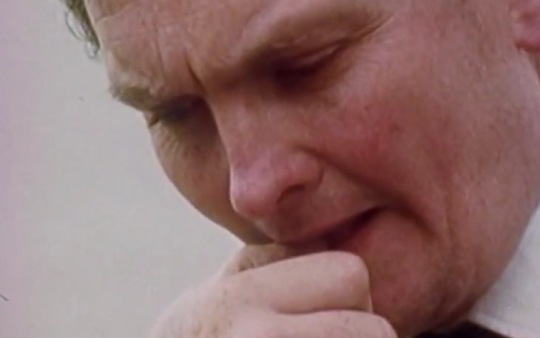
Finally, on April 9, he broke radio silence and returned to the race with a telegram stating: '' Heading for Digger Ramrez this suggests that he is approaching Diego Ramirez, a small island southwest of Cape Horn. The fictitious position reports he sends are increasingly elaborate. The navigator is playing a double game, trapped in his own lies, and is unlikely to make it to the end.
At this point, Moitessier had his moment of madness and decided to abandon the race to head for Tahiti, '' to save his soul as he explains in The Long Road . The only other competitors in the race were Knox-Johnston, who was slowly making his way up the Atlantic and closing in on first place, and Tetley, who was continuing to follow in his wake to win the prize for the fastest voyage.
For Crowhurst, the moments of doubt multiply. And the ocean, his companion in adventure, turns into a land of false promises. Aware that any official abandonment would mean bankruptcy and the obligation to repay his creditors, he considered another strategy. He seems to have considered finishing in second place, just behind Tetley, in order to protect himself financially while minimizing the risks associated with the discovery of his false logbooks.
However, his return to the race completely upsets the course of events. Tetley, who had already encountered mechanical problems on his way back from the Atlantic, feared that his speed record would be eclipsed by Crowhurst, who seemed about to rise from the ashes. In a burst of determination, Tetley stepped up the pace of his trimaran in an attempt to maintain his lead towards the finish line. But some 1,100 miles from his starting point, the inevitable happened: Tetley's boat broke up and sank. The skipper was evacuated by a passing ship.
Suddenly, attention is focused on Crowhurst, the unexpected amateur who seems to emerge from the shadows to challenge the professionals. The BBC has a crew ready to capture his arrival, while hundreds of thousands of people flock to Teignmouth seafront to cheer him on. It was precisely this scenario that Crowhurst had feared.
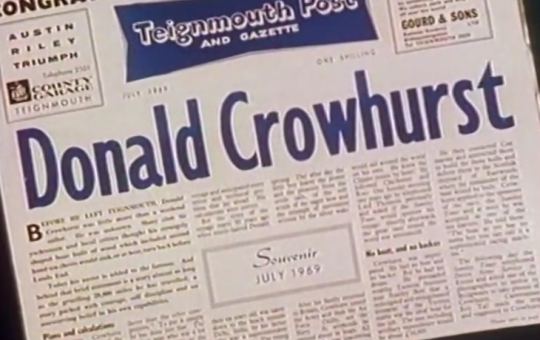
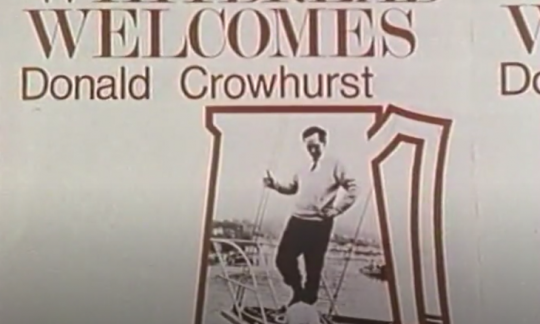
In mid-June, as he reached the Sargasso Sea, his logbook became the reflection of a tormented mind. In the space of a week, he composes a 25,000-word manifesto in which he asserts that humanity has reached such a stage of evolution that it is now capable of merging with the cosmos. He attempts to justify his actions, writing delirious pages on time and reality. Isolated, with no hope of returning undiscovered, he sinks into abysmal madness.
He ends his diary on July 1 with this desperate plea: '' I will only abandon this game - if you agree that - the next time this - game is played - it will be played - according to the - rules that are devised by - my great god who has - finally revealed to his son - not only the exact nature - of the reason for the games but - has also revealed the truth of - how the - next game will end that - It's over - It's finished - IT'S MISERYCORDE ''.
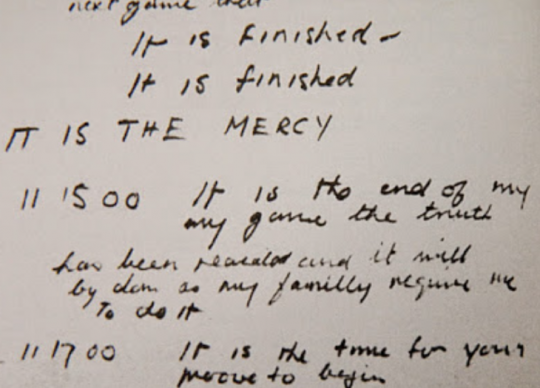
A lie that cost him his life
July 10, 1969, Teignmouth Electron was found empty, drifting off the Azores. No trace of Crowhurst. His diary shows a gradual mental collapse, right up to the last lines, where he seems to accept his fate. Everything suggests that he has finally thrown himself overboard. After more than 8 months at sea, Donald Crowhurst decided to end his adventure. As he neared the end of the race, failure turned into a fatal outcome. According to official reports, the sailor committed suicide aboard his trimaran. However, his body was never found.
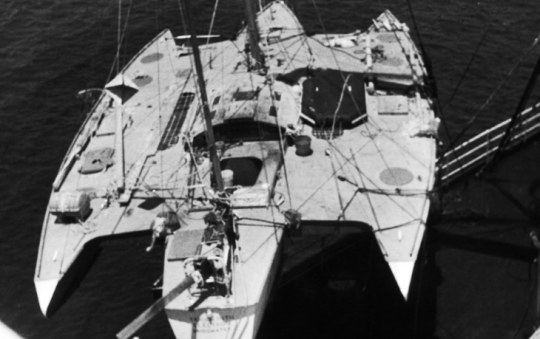
His lie, initially seen as an attempt to avoid failure, turned into a human tragedy. But the question remains: what was his final act? And, more importantly, what impact has this story had on solo sailing? Crowhurst not only cheated the sea, he also betrayed his own dream. In any case, a myth was born. The man who aspired to be a hero became a tragic legend. His story has inspired books, films and plays. It embodies inordinate ambition, social pressure and the terrible price of lying.
Since then, all sailboats have been fitted with Argos beacons and can no longer cheat.
Even today, Teignmouth Electron lies wrecked on a Caribbean beach, the last vestige of a shattered dream.
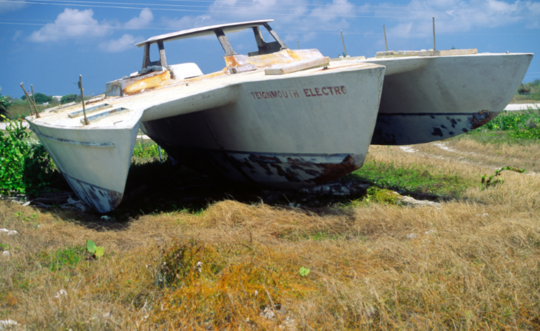
Reflections on the legacy of Donald Crowhurst
Donald Crowhurst's story continues to challenge the world of sailing. His tragedy raises essential questions about the ethics of competition, solitude at sea and the psychological limits of sailors. The falsification of his positions, the ultimate subterfuge in the face of unbearable pressure, symbolizes his despair as much as it reveals a man's fragility in the face of the immensity of the ocean.
For many sailors, his adventure is a warning: the sea tolerates neither illusion nor renunciation. Yet his story continues to fascinate, embodying both the audacity of those who push their limits and the price to be paid for an inordinate quest for recognition. Donald Crowhurst has thus become a paradoxical figure, both victim and actor in his own shipwreck, a legend that haunts the history of solo sailing.
Two years after his disappearance, a meticulous investigation by journalists has attempted to define Crowhurst's character, without ever deciding between madness and tragedy. The book The strange journey of Donald Crowhurst compiles testimonies while tracing his wanderings and the choices that led him to a dead end. In 2018, the cinema took up this story with The Mercy a British film about his participation in the Sunday Times Golden Globe Race .
These words: '' It is the mercy these words, written by Crowhurst in his final moments, have become one of the most poignant and disturbing elements of this tragedy. This phrase seems to embody his desperate plea for some form of redemption or liberation, symbolizing his extreme suffering and search for mercy in a situation of total impasse. These words seal not only the end of his journey, but also his ultimate aspiration for deliverance from the unbearable pressure he has been subjected to.
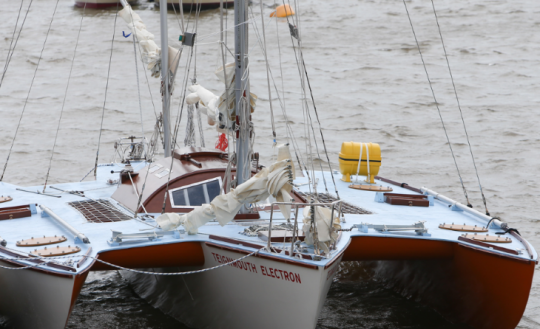
Since 1969, Donald Crowhurst has become a mythical figure. 9 films and documentaries, 8 plays and a multitude of books have been dedicated to him. His name has even been adopted by a Californian heavy metal band. But why such an infatuation with this character when others, caught cheating, are quickly vilified?
The answer lies largely in the environment of his story. The sea, relentless and merciless, amplifies isolation and personal torment to the extreme. At a time when the suicide rate among sailors was much higher than in the general population, the psychological pressure exerted by solitary sailing could become unbearable. The other key to his mystery lies in his outsider position. Unlike conscious and cynical cheaters, Crowhurst had not premeditated his deception. His inordinate ambition ensnared him and led him into a spiral where each choice brought him a little closer to disaster. His story is one of a trap he set for himself, an irreversible descent where fear of failure stifled reason. And that's probably what makes him so human.

 /
/ 